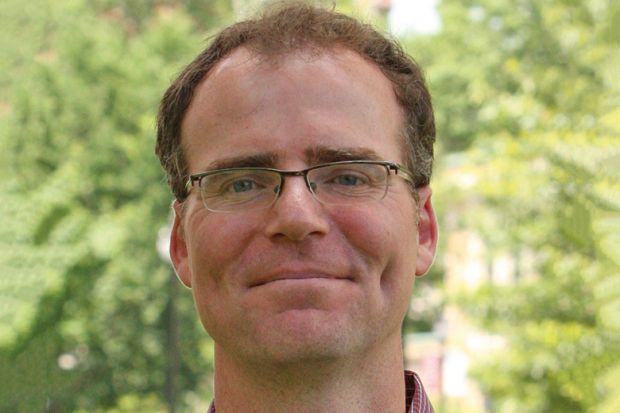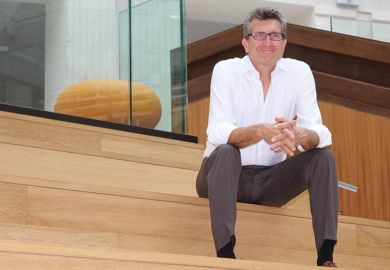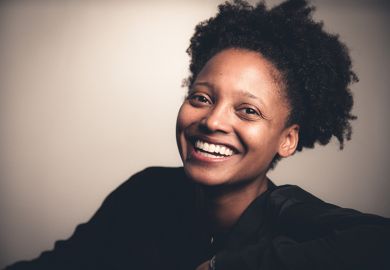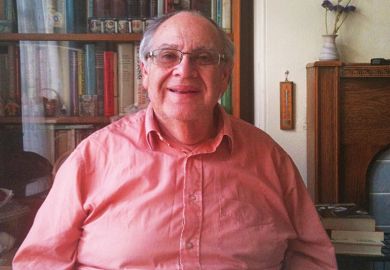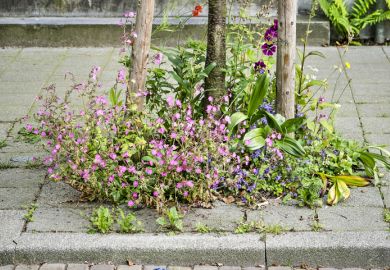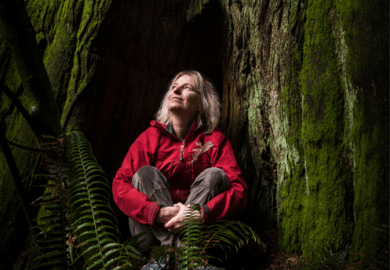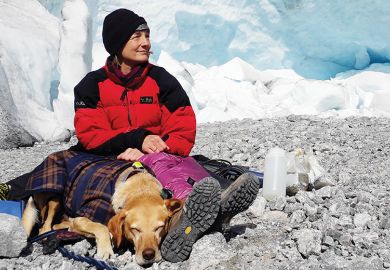Isaac Larsen is assistant professor of geosciences at the University of Massachusetts Amherst. He specialises in quantitative landscape evolution, examining how erosion, tectonics and climate interact to shape mountain topography, and how humans influence landscapes. Earlier this year he won a five-year career development grant from the US’ National Science Foundation. In June he was awarded the Luna B. Leopold Young Scientist Award for 2017 by the American Geophysical Union, recognising a junior researcher who has made “a significant and outstanding contribution that advances the field of earth and planetary surface processes”.
Where and when were you born?
I was born in the Midwestern US: north-central Iowa in 1978. It was small-town, rural America. I grew up surrounded by cornfields and there were only 19 students in my graduating high school class.
How has this shaped you?
It was a place where people worked hard and were stoic. And for better or worse, that’s a decent description of who I am.
What is the significance of winning such an award?
There are many people at my career stage who are doing great work, and to be singled out for the Luna Leopold award is a real honour. Professor Leopold and his colleagues ushered in a quantitative revolution in geomorphology, and to have one’s name associated with his is very humbling.
What do you think are the biggest challenges facing early career researchers at the moment?
For those finishing up a PhD or postdoc, finding that next position is a challenge. There are only a handful of tenure-track positions at US research universities in my field in any given year, and in countries where research programmes are hierarchical, you may need to wait years for a chance to run your own research group.
Do you think it’s harder than ever to pursue an academic career?
I don’t know, but when you hear about the “good old days” when funding rates were high, department offices were well staffed with administrative assistants, and lab technicians abounded, it makes you wonder.
What inspired you to enter the field of geosciences?
Geology wasn’t on my radar before I went to college. There weren’t a lot of rocks where I grew up and it wasn’t taught in school. I took an introductory geology class in my sophomore year at Carleton College [in Minnesota], taught by a very excitable professor. His excitement was a bit infectious, so I took some more classes. I enjoyed studying outside in the field, and the challenge of interpreting rocks to tell the history of the earth, but also the support and camaraderie of the department.
What kind of undergraduate were you?
I worked hard and played hard. I was on the track and field team, so I had to balance academics and athletics. I was very diligent; I think I could count the number of classes I missed in four years on one hand, but none of those were due to late nights out with my friends.
What’s your most memorable moment at university?
Graduation day will always stick with me. I went to a liberal arts college, and that curriculum challenges you to delve into studies far from your comfort zone. So graduation was a big feeling of accomplishment, I’d say even more so than when receiving my PhD. I clearly remember coming across two friends after the ceremony, who were crying their eyes out, and I couldn’t help but join them. It was very emotional.
What is the biggest misconception about your field of study?
When I say I’m a geomorphologist, most people say: “What’s that?” When I tell them I study how the chemistry and physics of Earth’s surface causes topography to evolve due to things like landslides, floods, and soil erosion, they say: “That’s really interesting!”
Do you think science research is chronically underfunded by governments?
I think we’d have more sophisticated technologies and more knowledge that benefits society if more funds were devoted to basic research. My field is growing rapidly, but we’re not necessarily receiving a proportionally larger slice of the limited funding pie, and eventually that will limit progress.
What do you think is the biggest threat facing global higher education?
The ever-rising cost of a degree is a huge challenge here in the US. Attracting students to campus has become a real arms race, both in terms of infrastructure, such as new recreation centres, but also the human capital needed to run all the programming students expect. I’m very concerned that rising costs are outpacing the rise in financial support, which denies smart kids without deep pockets the opportunity of attending university.
What divided your life into a ‘before’ and ‘after’?
Having children was certainly a change. It was a good change but it took some time to figure out how to balance what my kids need with the demands of an academic career. Since my kids’ needs are changing as they get older, it is a moving target to get the right balance.
What keeps you awake at night?
My two young boys. They aren’t particularly sound sleepers and for some reason they prefer to wake me up instead of my wife.
What brings you comfort?
A fire in my wood stove on a cold New England night.
What’s your biggest regret?
I wish I could finger pick a banjo and play bluegrass music, but I’m afraid it’s hopeless.
What would you like to be remembered for?
I’d like to be remembered for being a caring person who maybe had a few good ideas along the way.
john.elmes@timeshighereducation.com
Appointments
Theo Farrell has been appointed executive dean of the Faculty of Law, Humanities and the Arts at the University of Wollongong. Professor Farrell makes the move to the southern hemisphere from City, University of London, where he is dean of arts and social sciences and professor of international security. He was previously head of the department of war studies at King’s College London, where he also held a professorship of war in the modern world for 10 years. “I am delighted to be joining a faculty with so many research strengths and an outstanding track record in teaching and learning,” he said. “I look forward to working with colleagues to develop new research areas and expand education provision in law, humanities and arts.” Professor Farrell takes up his new role in October.
Helen Atkinson has been appointed pro vice-chancellor and head of the School of Aerospace, Transport Systems and Manu-facturing at Cranfield University. Professor Atkinson, who is currently graduate dean at the University of Leicester, joins Cranfield in September. Previously, she was head of the engineering department at Leicester, having been appointed to a chair in metals processing in 2002. “Cranfield has an outstanding reputation and I look forward to working with colleagues to develop that further in our teaching, research and relationships with industry,” she said.
Camille Carroll, research fellow in clinical neuroscience at Plymouth University Peninsula Schools of Medicine and Dentistry, has been appointed National Institute for Health Research clinical research network national specialty lead for neurodegeneration.
Harriet Harman, Labour MP for Camberwell and Peckham, has taken up her unpaid role as chair of Trinity Laban Conservatoire of Music and Dance.
Lord Browne of Madingley, the former BP chief executive, became the chairman of the Francis Crick Institute on 1 August.
POSTSCRIPT:
Print headline: HE & me
Register to continue
Why register?
- Registration is free and only takes a moment
- Once registered, you can read 3 articles a month
- Sign up for our newsletter
Subscribe
Or subscribe for unlimited access to:
- Unlimited access to news, views, insights & reviews
- Digital editions
- Digital access to THE’s university and college rankings analysis
Already registered or a current subscriber?
